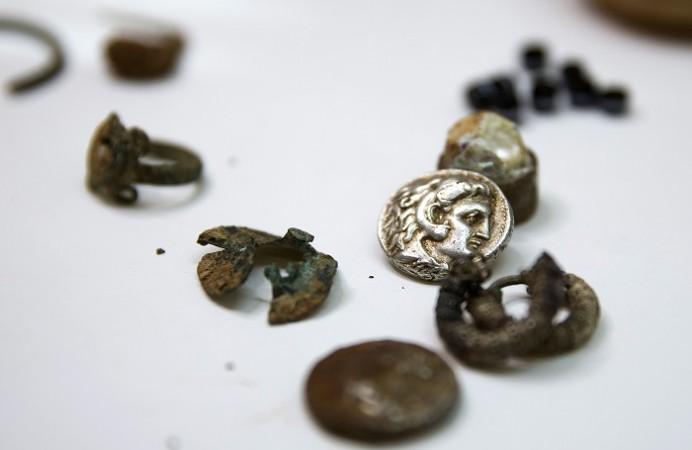
A stash of jewelry and coins that are reportedly from the era of Alexander the Great have been discovered in Israel.
Israel Antiquities Authority has released photographs that show a cache of silver objects reportedly uncovered in northern Israel by cave researches. Spelunkers and members of the Israeli caving club reported spotted something shiny inside one of the stalactite caves in northern Israel, which was located well out of the sight so far.
Among the things discovered were two coins of Alexander of Macedon, three rings, four bracelets, two decorated earrings, three other different earrings that are probably silver and a small tone weight, reports Xinhua.
The items are reportedly 2,300 years old and belong to the era of Alexander the great who, according to historical accounts, conquered the region in the late fourth century BC.
The Israel Antiquities Authority says the cache was most possibly hidden in the cave during a period of crisis or unrest after the death of Alexander the Great, reports WDAM.
"The valuables might have been hidden in the cave by local residents who fled there during the period of governmental unrest stemming from the death of Alexander, a time when the Wars of the Diadochi broke out in Israel between Alexander's heirs following his death," the Daily Mail quoted a spokesperson as saying.
"Presumably the cache was hidden in the hope of better days, but today we know that whoever buried the treasure never returned to collect it."
One of the spelunker recognised as Hen Zakai spotted the shining items on the cave floor, the location of which has not been revealed. He and his group, which included his son, had spent several hours exploring and studying the narrow passages of the cave when he suddenly chanced upon the cache wrapped in a cloth, the Mail reported.
It is unclear when exactly the discovery was made.

















